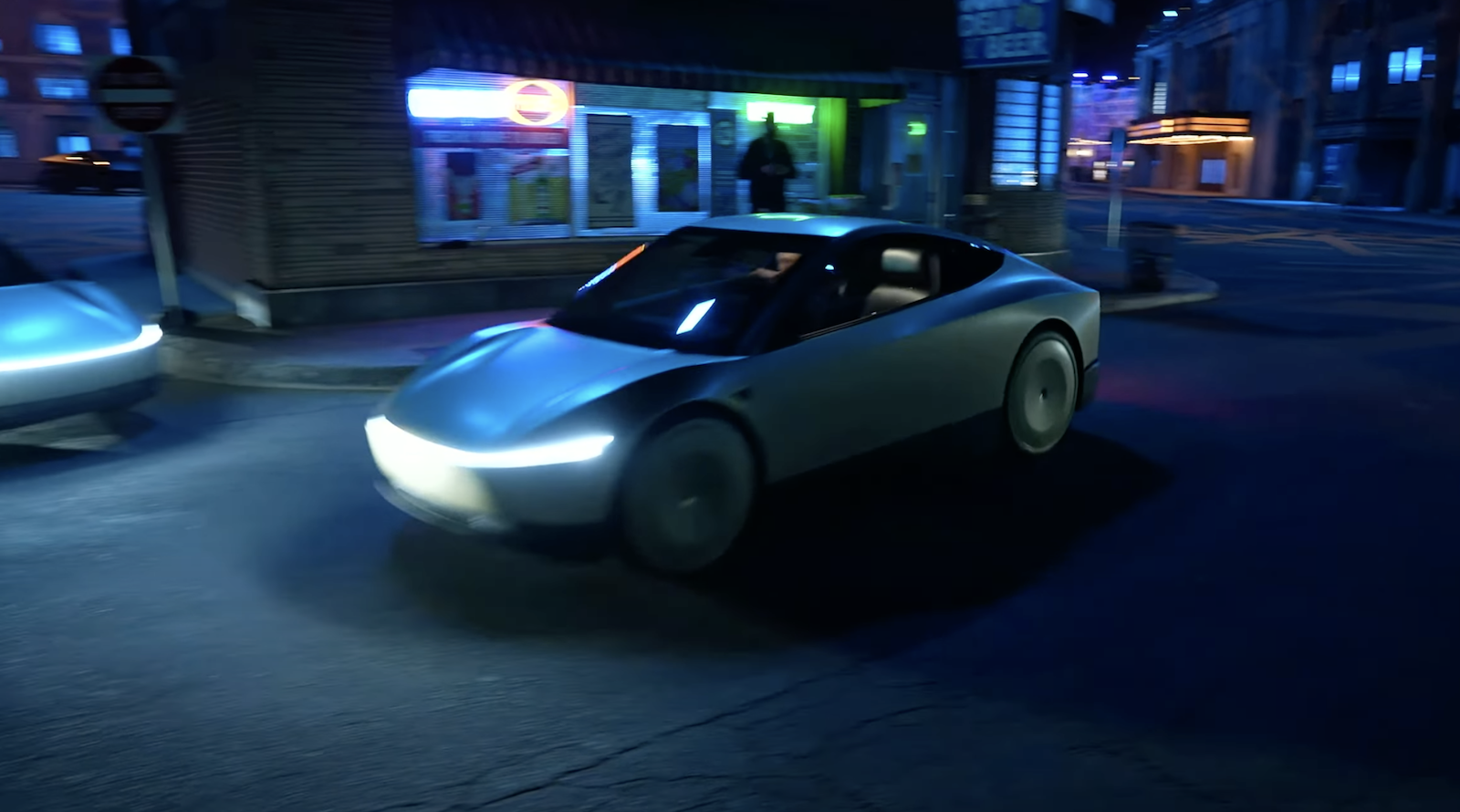Sign up for daily news updates from CleanTechnica on email. Or follow us on Google News!
As if the US auto industry’s transition to electric vehicles hasn’t been rocky enough, Donald Trump’s victory over Kamala Harris adds uncertainty to the push by Detroit automakers toward an all-electric future, industry watchers tell the Detroit Free Press. But it will likely ease the pressure on them to build more fuel-efficient cars and trucks with lower exhaust emissions. However, another Trump administration may be fraught for automakers as well. Auto analysts who spoke with the Free Press said it would be difficult for him to completely gut President Joe Biden’s Inflation Reduction Act initiatives, but he could defund or limit some of the EV subsidies included in the IRA through executive orders.
The impact on unions is less clear. While union members were divided in their support for Trump and Harris, UAW president Shawn Fain endorsed Harris and was openly disdainful of Trump. Trump is likely to be unfriendly in return, which some say plays to Fain’s own combative style. Industry forecasters such as Cox Automotive predict US auto sales will finish the year up about 2% with 15.7 million new vehicle sales this year. “Presidents come and go, but the auto industry motors on,” Mark Schirmer of Cox Automotive, said in a November 7, 2024 newsletter.
“It’s very mixed in terms of the implications in this 313 area code,” Dan Ives of Wedbush Securities told the Detroit Free Press on Wednesday. He agreed there will be less pressure for GM, Ford, and Stellantis to pursue a speedy transition to electric cars, yet the tariffs Trump has threatened to impose will complicate the supply of imported auto parts.
“Tariffs will lead to more jobs for U.S. workers at component suppliers and higher costs for car buyers, who already suffer from sticker shock,” said Erik Gordon, business professor at the University of Michigan. “People will keep cars longer, and that will be good for the replacement parts and service industries.” By implication, it will be less beneficial to automakers who are already finding that many customers are balking at the high prices of new cars.
Electric Vehicles & Tariffs
Morningstar Autos analyst David Whiston told the Free Press that large tariffs on all imports would violate the USMCA agreement with Canada and Mexico, which could be a major detriment for American automakers, especially GM and Stellantis, which make some of their pickups in Mexico, he said. Ford also makes cars in Mexico. “I don’t think Trump would do tariffs (that) will hurt the Detroit Three, at least not severely,” Whiston said in an email. “Things like the steel tariffs that took low billion-dollar profit amounts from earnings years back are probably a bigger tariff threat than one on all vehicle exports to the U.S.” He added that tariffs on Chinese-made cars won’t have a big impact because few of them are being imported to the US at the present time. [Note: Volvo announced yesterday that the EX 30 manufactured in China will be sold in America before the end of this year.]
Joe McCabe, CEO of AutoForecast Solutions, told the Free Press that tariffs are not a long term solution to building a domestic economy and manufacturing base, noting that tariffs become a tax on the consumer and ultimately prices go up. He pointed to an argument that the 60-year old “Chicken Tax” — a 25% tariff on imported light trucks imposed over European tariffs on American chicken — helped create Detroit automakers’ truck dominance. But in doing so, it gave domestically manufactured trucks a monopoly, which allowed them to become too expensive because of a lack of competition. “With that said, (the tariff strategy) is currently the only hammer in the U.S. toolbox until we find a more balanced solution. The goal is to buy time for our domestic market to improve efficiencies and competitive priced products.”
One of the first things Trump is likely to do is revoke the $7,500 EV tax credit provided by the Inflation Reduction Act, Dan Ives said. That would not only be “a gut punch to the EV initiatives” of the Detroit Three, but it would give EV sales leader Tesla an advantage. Tesla does not need the tax credit as much as GM and Ford do because it has the sales volume to lower prices and other cost advantages, he added.
Cutting Support For Electric Vehicles
Trump has promised to scale back or eliminate many of the Environmental Protection Agency’s emissions standards as well as incentives to promote production and adoption of EVs. Some experts said less regulation would ease the cost squeeze many automakers are experiencing. Slowing electric-vehicle adoption is likely if Trump delivers on his promise to gut policies that are friendly to electric vehicles, policies he has called the “green new scam.”
Bloomberg reports that automotive industry forecaster GlobalData cut its outlook for EV market share in the US for 2030 to 28% from 33% due to Trump’s election. [The UK is already at 30% and China is over 50%.] “The transition to electric vehicles in the US will be hindered under Trump’s administration,” Jeff Schuster of GlobalData said in a note. Trump’s focus on lowering oil prices and weakening tailpipe emissions standards could reduce electric vehicle market share by 15% to 20%, he said. $129 billion worth of EV investments in North America through 2027 are “at risk,” Mark Wakefield, global automotive lead at consultant AlixPartners, said in an interview. “What the EV market will look five years out is definitely less, much less.”
Automakers will continue to reduce spending on EVs and delay or cancel new battery-powered models, Wakefield said. Automakers will also look for ways to increase production of profitable combustion engine vehicles, while converting EV plants into facilities that can also build plug-in hybrids, as Volkswagen’s new Scout division is doing at its $2 billion EV factory under construction in South Carolina. “From a profitability perspective, it’s a challenge because you’ve got a lot of industrial plans with assumed volumes for EVs that are less” now, so some of those plants might turn into hybrid plants doing both, rather than pure EV.” he added.
MORE Emissions. Yeah, That’s What We Need!
Bigger changes are likely in store for fuel economy regulations, Wakefield said. Trump softened those rules during his first administration and has promised to end what he calls “EV mandates” on the first day of his second term, though changing such policies involves a lengthy process that can take months or years. “It’s less about what happens this year,” Wakefield said. “That doesn’t really hit you until 2027.” Just in time for the next presidential election. Oh, joy.
Steven Greenhouse, a senior fellow at The Century Foundation, noted that Trump “seemingly moderated his antipathy to EVs as he sidled up to Musk” during the campaign, but he might still try to reduce or eliminate EV subsidies, “and that would certainly mess up Detroit’s automakers’ plans and probably hurt many autoworkers.”
Electric Drive Transportation Association president Genevieve Cullen said in a statement Wednesday that the group will continue to work with both parties to “secure the economic and environmental opportunities presented by electric drive technologies.” She said more than 130 EV models are currently available, with nearly 6 million sold. In addition, 362 companies have invested $320 billion in the American EV market. Last year, the electrified vehicle segment supported 373,605 jobs in the US, while another 850,000 ancillary jobs are supported the EV industry.
Bye Bye, NHTSA
If you are wondering what prompted Elon Musk to plant a big wet kiss on Donald Trump, here is a partial answer. Michael Brooks, executive director of the nonprofit Center for Auto Safety, said he expects the auto industry will be pleased with what is likely going to happen at the National Highway Traffic Safety Administration. “If the first Trump presidency is any indication, we will see NHTSA’s now-active rulemaking division come to a screeching halt. I think we only saw two relatively minor final rules make it across the finish line from 2017-2020 in Trump’s first term, whereas the Biden NHTSA has been far more active in rule making efforts.”
Brooks noted that dozens of rules are in the review process. “Most of those rule making efforts will be hitting wet concrete under the Trump administration, including important rules on impaired driving tech, pedestrian protection, autonomous vehicles, and advanced driver assistance systems. Also likely would be attempted rollbacks of fuel economy standards and electric vehicle policy.”
NHTSA’s work related to vehicle recalls is also likely to be affected. Brooks noted that under the previous Trump administration, the agency’s defect investigations were near “all-time lows,” which made it difficult to uncover defects and influence safety recalls. That stands in contrast to the agency’s current “far more active” work to pursue defect investigations and see them through to timely conclusions, he said. “If Trump follows through on making Elon Musk a leader in the administration, we could also see NHTSA enforcement investigations influenced, particularly those involving Tesla, which is currently facing an investigation into the capabilities of its ‘Full Self-Driving’ tech,” Brooks said.
More emissions, fewer electric vehicles and EV chargers, and more ginormous SUVs and pickup trucks. The future of transportation in America will be a reprise of the 1950s. Happy trails to you, CleanTechnica readers.

Chip in a few dollars a month to help support independent cleantech coverage that helps to accelerate the cleantech revolution!
Have a tip for CleanTechnica? Want to advertise? Want to suggest a guest for our CleanTech Talk podcast? Contact us here.
Sign up for our daily newsletter for 15 new cleantech stories a day. Or sign up for our weekly one if daily is too frequent.
CleanTechnica uses affiliate links. See our policy here.
CleanTechnica’s Comment Policy



